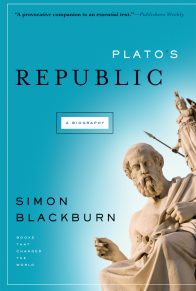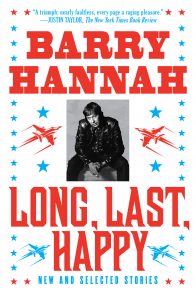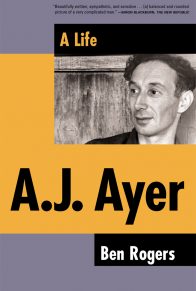After his death in 1683, Roger Williams, the founder of the Rhode Island colony, was buried beneath a young apple tree in his garden, and lay there until one day in 1936 when the local government decided to exhume his remains and place them in a monument to mark the state’s tercentenary. However, when the coffin was opened, what the gravediggers found was not Williams’s body. Some time in the preceding 253 years, a root from the apple tree had penetrated the casket and slowly absorbed the nutrients from the bones, leaving only fragments. In the process, the root had grown into the exact shape of the skeleton—entering through the skull, proceeding down the spine and parting to form two legs. Generations of schoolchildren had eaten fruit from the tree and were said to have become as independently minded as Williams as a result.
This story highlights a problem the Christian God would face should He decide to effect Judgement Day by reassembling the matter that once composed the bodies of the faithful. If He used the original atoms, ownership disputes would arise wherever the same matter had been part of different individuals’ bodies at different times. One might assume that cannibals would lose out to the Christians they consumed, but the Almighty would surely face a tougher decision when considering the claims of unsuspecting Rhode Island schoolchildren after Roger Williams’s remains entered the food chain. Perhaps God could circumvent the problem by creating a substitute for any contested matter so that there would be enough to go around. But then there would be a question of how much cosmic Polyfilla He could use without making someone a different person. There would be no sense in punishing or rewarding someone who was only a simulacrum of the perpetrator.
One does not have to wait for Judgement Day for this question to arise, as the matter from which our bodies are composed is almost completely replenished between birth and death. If the body is to be the seat of the soul, we should be aware that the only parts of it that remain with us throughout our lives are the ova of women and the lenses of the eyes. While eyes may be thought to be the window to the soul, one would hope that the soul is more than a few cubic millimetres of transparent jelly. As for the ova, this would leave us puzzling over where the souls of men reside. However, despite our constantly changing physical make-up, most of us feel that we are the same person as the child in our parents’ photo album, and feel confident that we will retain this identity as the senior citizens we will eventually become. Neither does one have to wait for God to give a moral dimension to the problem of personal identity. The issue of whether the old man is the same person as the younger bears on how deeply we should feel guilt and pride in our youth; it determines how we should think of our memories. It also impinges on how we should behave towards the people we will become, whether giving up smoking is a matter of long-term self-interest or of altruism towards a quite different self. Perhaps, most importantly, our answer to the problem of personal identity determines whether any of us has a future at all, whether after death or even before it.
In 1785, the Scottish philosopher Thomas Reid wrote: “Whatever this self may be, it is something which thinks, and deliberates and resolves, and acts, and suffers. I am not thought, I am not action, I am not feeling; I am something that thinks, and acts, and suffers.” This proviso meant that anything within one’s experience—anything in the world that we could come to know or discover—would be disqualified from claiming the title of “oneself.” Hence it has been assumed that the self would be an extra-worldly kind of entity, an ego or soul or some unitary object that, if only we could track it, would answer the question of personal identity: “Where the ego goes, I go.” As Reid’s fellow countryman David Hume noted, we cannot observe an ego through introspection. We alight only on our perceptions and emotions, never on the possessor of these qualities. Philosophers have sought to overcome this blind spot by looking sideways at one’s journey through life. What the self is in the present could best be discerned, it was thought, by examining what persists from one year to another across various bodily and psychological changes. Thus a large part of philosophers’ work on the subject has been a kind of “intuition mining,” where we imagine changes in our mental and physical make-up and ask whether we would feel that personal identity had been preserved. Intuition is not usually given such a starring role in philosophy, but when it comes to personal identity we have only our own word to go on, since no such thing as a distinct self seems to appear in Nature’s inventory alongside bodies, brains and personalities.
It is tempting to look beyond Nature for something outside our worldly existence, but this cannot solve the problem of personal identity. If there were a soul—a transcendent ego that owned one’s experiences—then we could never know whether it stayed in the same place or wandered, lived or died. Everything that we can be aware of is an experience, and this ego—being the supposed recipient of all one’s experiences—could never appear as one of them. Since our memories are among our experiences, these would be left behind by a departing ego. So one’s ego might have been attached to a different set of experiences yesterday, or to a different body tomorrow, and we would be none the wiser. Two people might even be swapping egos a hundred times a second without ever being aware of it. They would have no way of noticing, because a change of egos is a change of something outside their experiences. To the mystically inclined, a world of untethered egos, each devoid of traits and indistinguishable from the next, might indicate a monism in which all of us are part of one great universal soul. However, it needs to be asked what exactly constitutes “us” here, since it does not include our memories, personalities, bodies, brains or emotions—these mundane characteristics remain as separate from one another as ever, each housed in an individual man or woman. Any universal ego would seem to be a oneness of nothing. The more we wish to gain immortality by divesting ourselves of earthly trappings such as physicality, memories and the like, the more we reduce ourselves to nothing at all—and, to quote the American children’s author Norton Juster, doing nothing is hardly worth the effort.
According to Ancient Greek legend, after the hero Theseus had slain the Minotaur in Crete, his ship was taken on an annual voyage of thanks to the island of Delos. Over the years, the beams of the vessel rotted away one by one and were gradually replaced until, eventually, none of the original timbers remained. The ship still looked like the one Theseus had commanded, but we might wonder whether it was now the very same ship. Since there is continuity from one stage of the ship’s life to the next, we might decide that the later model is indeed the same ship as that which first set sail for Crete. But now suppose that the discarded planks had been collected and used to construct a new vessel to the original design. There would now be two rivals with claims to the identity of the Ship of Theseus, and the puzzle is that we feel unable to give a verdict even though we seem to know everything about the two candidates. Since we know all the relevant facts about the case, our ignorance must pertain instead to the concepts we are applying to it. There seems to be something inconsistent in the notion that identity is some special, further fact outside the ordinary properties of objects. George Washington’s axe is supposedly on display in a museum somewhere in the United States. It is labelled as the very axe that chopped down the famous cherry tree, although the notes for visitors also mention that both the handle and the blade have since been replaced. In the absence of a discrete relation called “identity,” any labelling seems arbitrary. However, when it comes to ourselves we are unwilling to accept that identity might be purely a matter of labelling. We are left wondering whether our real identity belongs to the self we now inhabit or whether that identity is more truly represented by the greyed, creaking ghost ship of one’s younger self.
The task of storing the discarded timbers of our lives is performed in our memories. In his 1690 work An Essay Concerning Human Understanding, the English philosopher John Locke proposed that the essential kernel of each human being is their consciousness, their self-awareness. Locke was aware of how counter-intuitive it seemed that something so nebulous—as opposed to a physical body or even an ethereal soul —could persist through time, since it was only marginally a “thing” at all. He argued that self-awareness was not just a consciousness of the present, but also of the past, given to us in memory. To be the same person as your younger self was to be able to remember being that child, with the sequence of memories providing a psychological thread through one’s lifetime.
Memory is imperfect and I may suffer lapses or blanks in my mental record without thereby being a different person at any time. Amnesia is not equivalent to death, we like to think. But perhaps it is quite close to it. Perhaps we have been kept awake at night by the thought that in the morning we will remember neither our final waking thoughts nor the fact that this prospect concerned us. The advanced stages of Alzheimer’s disease debilitate the memory so severely that not only can someone forget their keys, they can also forget what keys are for. Sufferers have been known to attack the spouses they do not recognize, believing them to be intruders in their home. When someone has forgotten all their friends and family, their past and even their name, it can seem that they have indeed become a different person—if they can still be called a person. Alzheimer’s disease is a powerful argument against life after death, because if you can be dead when you are alive then you can certainly be dead when you are dead.
In searching for a self we look for something over and above our attributes, but we do not usually think this way about ordinary objects. For example, I believe that my favourite armchair persists through time without imagining it to have a chair-soul or a chair-ego that possesses its traits. It has characteristics such as being three feet high at the seat, padded with foam and covered with green cloth, but there is no chair over and above these characteristics. If we took away the foam and the seat and the cloth and so on, we would not be left with a naked chair, as if objects were ghostly coat hangers upon which traits are hung. Yet this is precisely what we often imagine to be true in the case of persons. Abandoning this delusion draws a sharp difference between our situation and that of Thomas Reid’s day. When an immaterial soul was presumed to exist and there was rarely any doubt that a unitary self existed, personal characteristics were the footprints of the soul—indicators of personal identity, signs that pointed towards the self. Today, on the other hand, one’s traits are taken to be one’s self, as there is nowhere else to find the latter that is recognized by science. The question now is which particular traits are the most significant—and whether they can give us what we are looking for.
The late English philosopher Sir Bernard Williams argued that we identify more closely with our bodies than our minds. I was lucky enough to meet Williams before he died in June 2003, aged seventy-three, following a long struggle against cancer. He held forth on the gamut of philosophical issues in a way that made him the exemplar of the modern thinker. Erudite and candid, Williams moved within the mainstream of his discipline and changed it significantly at several junctures without overturning the intellectual order. He was born in Westcliff, Essex, and was introduced to philosophy as a student at Balliol College, Oxford. He mastered the subject so quickly that some of his fellow undergraduates neglected to turn up for tutorials in order to attend lessons from Williams in the junior common room instead. After finishing his studies he spent what he regarded as the happiest years of his life on national service as a Spitfire pilot in Canada. He was brought into political work by his first wife, the MP Shirley Williams, and for his efforts in moral philosophy he was appointed to government commissions on gambling, drugs and pornography.
To test our intuitions about the self, Williams concocts an imaginary scenario in which we are at the mercy of a mad scientist who has a programme of physical torture scheduled for the following day.2 He asks whether we would feel any less frightened if the scientist promised to wipe our memory clean before setting to work with the red-hot pliers. In a moment of generosity, he offers to replace our old memories with those of a completely different person—say, Napoleon. If memory is where selfhood lies, then we would have nothing to fear from the new day, as it would be “Napoleon” who was going to suffer and not us. However, most of us would find little comfort in the scientist’s sweetener. Indeed, it may even seem worse to suffer the double indignity of torture and amnesia, although the great commander’s iron resolve and forbearance would doubtless come in handy during the ordeal. Neither would it bring any comfort if my persecutor were to take a second victim and replace his memories and the rest of his personality with mine. If I had to decide, on purely selfish grounds, who was to be tortured and who was to be given £10,000 and set free, I would have no trouble in choosing to give the cash to “Napoleon.”
However, some futurists not only claim to prefer the opposite, but actually imagine paying good money for such a memory transferral. In The Age of Spiritual Machines, Ray Kurzweil speculates that one day we will be able to download our consciousness into computers, and live in better virtual worlds perhaps, or live forever. This will involve upgrading the “hardware” on which the “software” of your self runs. “Today,” writes Kurzweil, “our software cannot grow. It is stuck in a brain of a mere 100 trillion connections and synapses. But when the hardware is trillions of times more capable, there is no reason for our minds to stay so small. They can and will grow.” As better, faster, more capacious artificial brains come on to the market, the fragile, limited, messy neurons of the biological brains we grew up with will begin to look pass. More and more of us will make the switch to circuitry, and then our immortality will be “a matter of being sufficiently careful to make frequent backups. If we’re careless about this, we’ll have to load an old backup copy and be doomed to repeat our recent past.”
We might imagine a punter plugging his brain into a computer, then the husk of his body collapsing in a heap and finally his face appearing on the monitor. However, this is not what would happen. Nothing would jump from his brain into the machine. All that occurs is copying, just as, when you download a file from the Internet, the original file does not get sucked out of its home-server and rehoused in your PC. There is no reason why the process should not leave you as you are—conscious and in the same old body—while creating a confused silicon doppelganger. And if the original “you” is not left intact, then it would seem that the “downloading” process is fatal. The same flaw is present in the famous “transporter” machines in Star Trek, which supposedly take a traveller apart atom by atom and create them anew in a different location. Captain Kirk commits an elaborate form of suicide every time Scotty beams him up. One is able to think differently only by disregarding common notions of identity.
The Swedish philosopher Nick Bostrom is only too eager to rid us of such ideas. His working time is spent exploring what he described to me over the telephone as our “trans-human” future, asking what life will be like when technology has transformed our bodies and minds. He insisted to me that, as long as the technology had been shown to work reliably, he would be happy to be uploaded into a computer while his original physical form was destroyed, if this meant that he would enjoy a better life as an upload. And, as for a process that would leave his original body intact:
Our expectation about what will happen is a psychological state that hasn’t evolved to cope with those kinds of cases. On another level we have no uncertainty at all—in that we know that there will be copying and that there will be precisely two candidates afterwards, one in the computer and one in the physical world. I think the least distortion between the two levels is caused by mapping the outcomes to probabilities. Suppose, for example, that we know tomorrow we are to be bifurcated into two selves with equal claim to identity with my present self, and that one of these selves will be tortured horribly. I think I should feel the same as if there was to be no bifurcation but a 50 per cent chance that I was going to suffer the same experience tomorrow.
One wonders whether distance would be an issue in the transfers of selfhood that Bostrom has in mind, for there is also the problem of how to distinguish between intentional and unintentional copying. Imagine, for example, being atomized in an industrial accident while, in another galaxy, a group of alien scientists unintentionally create a computer configuration that corresponds to your brain patterns, just like the one that scientists on earth might have created on purpose. Presumably, one would not expect to wake up in the Andromeda galaxy in this instance. Neither would Bostrom. For him, the important difference is that there is no causal connection between his original self and the aliens’ creation. As he wrote to me: “The accidental copy will not be in any way affected by what I do, so it makes little sense to adjust my attitudes and feelings to take account of its existence.” On the face of it this seems an odd way of talking about identity, because it is the fate of a particular self that is at issue rather than anyone’s feelings or expectations. Perhaps the original individual can influence what happens to a planned copy after his body has been destroyed, whereas he cannot influence one created by accident, but this has no bearing on what each copy is like intrinsically. The history of each is very different for sure, but we want identity to be more than just a story. Nonetheless, a story is all we are going to get once selfhood is revealed to be a matter of narratives and relations rather than objects and traits.
These thought experiments show that while memory, personality, emotions and other psychological traits might be indicative of personal identity, they are not constitutive of it. Before the intervention of Bernard Williams, we may have felt unsure whether psychological alterations would cause us to become a truly different person or the same person with different characteristics. But the prospect of physical torture sharpens the mind. When the chips are down and the pliers are hot, we think of ourselves as bodies, or at least as brains. The brain, rather than the body as a whole, is today the last refuge of the self. If brain transplants are ever perfected, then my body, like my present car, might one day belong to someone else. But there is no chance that my brain could belong to someone else. I could give someone my kidney, or heart or lungs, but I could not give him my brain without turning him into me, albeit with a different body.
The brain, however, can be changed—its pathways altered, its cells damaged—without us losing our selfhood. Brains have two hemispheres, and removing one of them is the correct surgical procedure for treating certain forms of brain tumour. People can survive this process with their identity intact, although they may suffer disabilities such as loss of speech. Many patients make a good recovery as their remaining brain hemisphere relearns the skills that were lost. If I undergo such radical surgery either “I” will survive it or “I” won’t survive. It does not seem possible that I should only partially survive, since if any part survives then the operation is a success as far as I am concerned. If 1 per cent of my brain were removed, I should obviously expect to wake up and still be me. If 100 per cent were destroyed and replaced I should certainly expect not to and will feel doomed. If the proportion is 50 per cent I will feel unsure and worried, and pray that I wake up with a sore scalp and a lighter head. But it is not as if there is a “me,” a self, hanging around in the air to inhabit or not inhabit one of these possibilities. Whoever is lying there on the operating table is going to wake up, and he will be whoever he is. There would be no difference between the patient’s waking up and being “me” and his waking up and being someone else. All there is to know concerns the proportions of tissue involved and the results as reported by the patient afterwards. Barring the supernatural, there are just no extra facts that remain to be discovered. There might be a critical level of replacement which settles the question, but we cannot assume this any more than we can assume that there is a crucial grain of sand that turns a pile into a heap or a final hair follicle which, once gone, leaves a “thinning” man “bald.”
Suppose we now try to imagine what would happen if the other hemisphere of the brain were saved and transplanted into a new body. Since the two hemispheres are taken to be identical, which body should I expect to wake up in? I cannot wake up in both bodies, as I cannot be two people at once. There seems to be no reason for me to wake up in body A rather than body B, or vice versa, which leads to the suspicion that we can really expect to wake up in neither body. The problem is that we have run out of facts. Once we have full descriptions of the initial patient and the two survivors, we know everything about the case. We know where the brain parts have gone and we know where the bodies have gone. But there are no further facts left that we can look to in order to settle the question of whether body A will be “me.” In looking for “me” we can look only for my components and attributes, and, if knowing all there is to know about these factors cannot settle our question, then the question is an empty one.
The dissolution of the paradox is not comforting when it comes to our own lives. We are disposed to conclude that division is tantamount to death. But if we accept this, then we must revise our expectations in the earlier case, where only one hemisphere of the brain survives. This too must count as death, because the relationship between what wakes up and what fell asleep cannot be affected by a third party, even an extra brain hemisphere that survives. Whatever survives the operation that destroys half my brain, then, will not be me (no matter how much whoever wakes up protests that he is me). And yet, asks the British philosopher Derek Parfit: “How could I fail to survive if the other half of my brain was also successfully transplanted? How could a double success be a failure?” To think in this way, he argues, is to make the mistake once again of assuming that there is something important that we do not know some further factor in the nature of the self akin to a soul that could preserve our identity. Rejecting this assumption, Parfit argues that to view division as demise is arbitrary, as my surviving the operation and my not surviving are not two genuinely different possibilities, either of which might be true. Survival and death here are “merely two different descriptions of the same outcome.” He suggests that we regard division rather like a drug that doubles your lifespan—only the extra years are to run concurrently.
We have to remember that the operation is effectively performed on all of us several times over the course of our lives—during childhood when neural tissue is being formed, as well as later when it degenerates. It can look as though we will cease to exist long before our deaths. Were there such a unity as a soul at the heart of us, we might imagine it squeezing over into the left hemisphere of the brain as the right hemisphere is cut away, as if jumping from plank to plank as successive beams of Theseus’ ship are replaced. But there is no evidence that any such thing takes place in nature. The personal identity debate shows just what happens when we dispense with the soul. For Parfit, the consequences are liberating. He writes that when he thought his existence a fact distinct from his physical and psychological continuity, he seemed “imprisoned” in himself. “My life seemed like a glass tunnel, through which I was moving faster every year, and at the end of which there was darkness.” However:
When I changed my view, the walls of my glass tunnel disappeared. I now live in the open air. There is still a difference between my life and the lives of other people. But the difference is less. Other people are closer. I am less concerned about the rest of my own life, and more concerned about the lives of others.
Another response might be to dwell on how the fleeting status of human existence has been accentuated. Not only are human beings continually coming into being and passing away, but they are even doing this on countless occasions within a single lifetime. We are, it seems, a flicker within a flicker.













